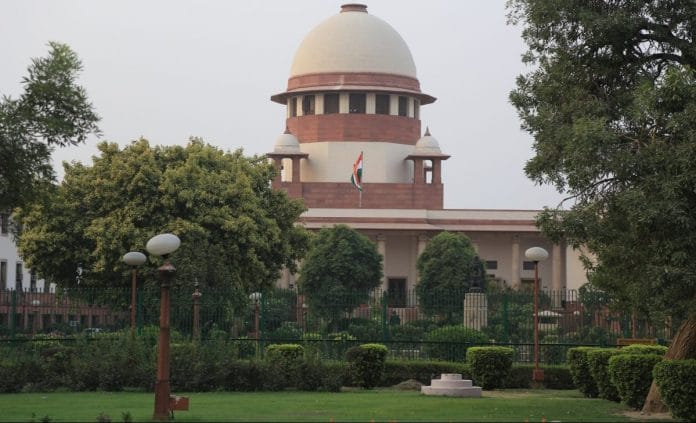New Delhi: The Supreme Court Wednesday set off the countdown to a final verdict in the decades-old Ram Janmabhoomi case, saying arguments in the matter are likely to be wrapped up by 18 October.
This means the five-judge Constitution bench hearing the title suit could deliver the verdict within a month as CJI Ranjan Gogoi, who heads it, is set to retire on 17 November.
Wednesday marked the 26th day of daily arguments in the Ram Janmabhoomi title suit, which centres on the land dispute at the heart of the issue. Both Muslims and Hindus claim right to the plot where the Babri Masjid stood in Ayodhya until Hindu fundamentalists brought it down in December 1992.
Also Read: Ayodhya trial fallout: Lord Ram’s growing ‘descendants’ — Congress & BJP leaders, hotelier
Court to work extra hours
Urging parties to make joint efforts to ensure a speedy hearing in the case, the CJI said the court was considering holding hearings on Saturdays — which is usually an off-day for the court — and extending the daily hearing by an hour.
The court’s observation came just a day after the five-judge bench sought to know from the parties — the Sunni Waqf Board, the Ram Lalla (the idol installed at the site), among others — how long it would take to wrap up the complete arguments.
Senior Advocate Rajeev Dhavan is currently making submissions on behalf of the Sunni Waqf Board.
This would be followed by submissions from the All India Muslim Personal Law Board, a rebuttal by the Hindu parties, and counter-arguments by the Muslim parties. The Hindu parties had presented their first round of arguments in the earlier leg of the hearings.
The bench also said it had received a letter from the SC-appointed Justice Fakir Mohamed Kalifulla-led mediation panel where it was proposed that the mediation process be resumed as it could help make headway in the case. The Uttar Pradesh Sunni Waqf Board had earlier written to the panel, urging it to allow resumption of mediation proceedings.
The court said mediation could continue if the parties so chose, but added, “since the hearing is at an advanced stage”, the mediation would be carried out simultaneously with hearings and would remain a confidential affair. In case a settlement is arrived at, the court has directed the panel to inform it.
The arguments
The Muslim parties have questioned the “archaeological evidence” relied on by the Hindus, saying the pillars found at the disputed site do not conclusively prove there had been a temple there.
The Hindu parties argued that the 16th-century Babri Masjid was built on the ruins of a Ram temple at the site, which is believed to mark the birthplace of Hindu deity Ram.
Dhavan, appearing for the Sunni Waqf Board and others including original litigant M. Siddiq, argued that the 14 kasauti pillars found at the site didn’t bear any image of a God.
One of the Hindu parties, the Nirmohi Akahara, had earlier staked claim to the disputed site by suggesting that pillars inside the mosque had images of human beings and animals, and that such a place could never be used for prayers according to Islam.
However, Dhavan argued that no direct evidence of image of God has been presented and hence the claim of Hindus could not be proven.
Also read: Rao to Vajpayee, Ayodhya mediation always failed. Supreme Court must not fall for it again






